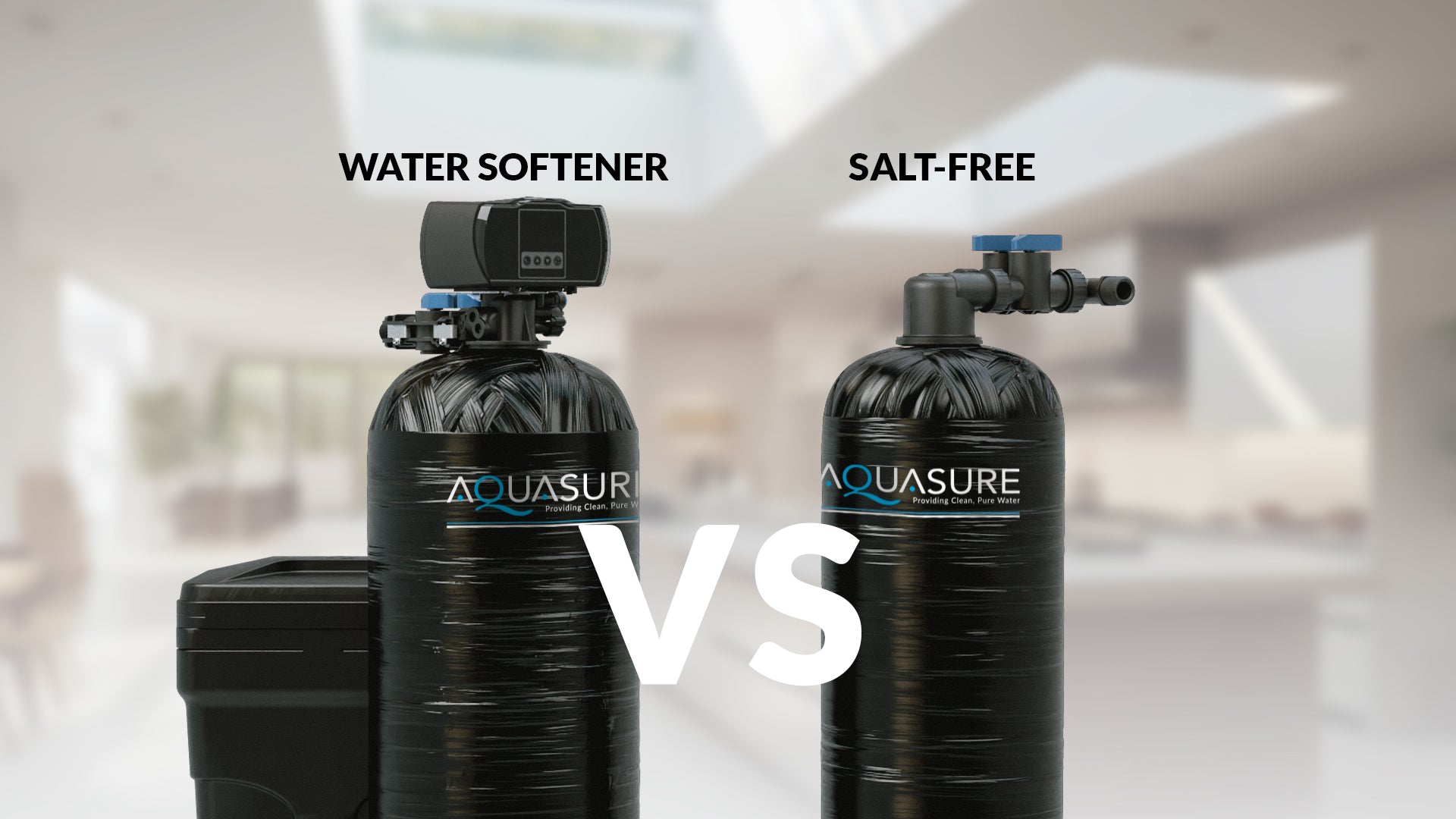Choosing between traditional salt-based water softeners and salt-free conditioners can be a tough decision for homeowners seeking to improve water hardness. Each option presents unique advantages and considerations that cater to diverse needs and preferences.
In this comprehensive guide, we delve into the key differences between salt-based water softeners and salt-free conditioners, examining factors such as maintenance, water quality, and suitability for various water sources.
By exploring the benefits of each system, we aim to empower you to make an informed choice that aligns with your household's unique requirements, lifestyle, budget, and water quality objectives. Let’s take a closer look:
|
Features |
||
|
Water Softening Method |
Uses template-assisted crystallization (TAC) technology |
Utilizes ion exchange resin beads to remove minerals like calcium and magnesium from water through salt-based regeneration. |
|
Salt Requirement |
Does not require salt. |
Requires salt for the regeneration process. |
|
Maintenance |
Typically requires less maintenance as it does not involve replenishing salt or cleaning brine tanks. |
Requires periodic replenishment of salt and occasional cleaning of the brine tank. |
|
Water Taste and Quality |
Does not add sodium to the water, preserving the taste and quality of drinking water. |
May add sodium to the water during the regeneration process, which can affect taste for individuals on low-sodium diets. |
|
Initial Cost |
Higher initial cost due to the advanced technology involved. |
Lower initial cost with regular salt replacements |
|
Space Requirement |
Typically requires less space as it does not involve a brine tank. |
Requires space for the softener unit as well as the brine tank. |
|
Effectiveness |
Effective in moderately hard water to reduce scaling and buildup. |
Highly effective in removing minerals from hard water to reduce scaling and buildup. |
|
Suitability |
Suitable for individuals concerned about sodium intake, those with low-sodium diets, or where salt discharge into wastewater is a concern. |
Suitable for general water softening needs without specific concerns about sodium intake. |
|
Suitable Water Sources |
Suitable for city or municipal sources with low to moderate hardness levels. |
Suitable for city water and well water sources with varying hardness levels. |
|
Environmental Concerns |
Recommended for eco-conscious consumers or areas with strict regulations on salt discharge. |
Suitable for areas where salt discharge is not a concern or where there are no specific environmental regulations. |
In the debate between salt-based water softeners and salt-free conditioners, there's no one-size-fits-all solution. Both systems offer distinct benefits, from effective water softening and maintenance ease to considerations like costs and suitability for low-sodium diets. Understanding your water quality needs, lifestyle preferences, and long-term goals is crucial in determining which option best suits your household. Whether you prioritize silky water feel, eco-friendliness, or sodium sensitivity, weighing the pros and cons outlined in this guide will guide you towards the right choice for achieving optimal water quality and enhancing your overall living experience. Regardless of which Aquasure system you choose, you can enjoy the peace of mind that comes with unparalleled water quality.
TLDR;
|
Criteria |
||
|
Salt-Free |
✔️ |
❌ |
|
Suitable Water Sources |
✔️ (city/municipal water) |
✔️ (city & well water) |
|
Softens Water |
❌ (conditions water) |
✔️ |
|
Protects Appliances |
✔️ |
✔️ |
|
Improves Skin & Hair |
✔️ |
✔️ |
|
Initial Cost |
❌ (higher initial cost) |
✔️ |
|
Space Saving |
✔️ |
❌ (requires brine tank) |
|
Effectiveness |
✔️ |
✔️ |
|
Sodium Sensitivity |
✔️ |
❌ (may not be suitable for low-sodium diets) |




